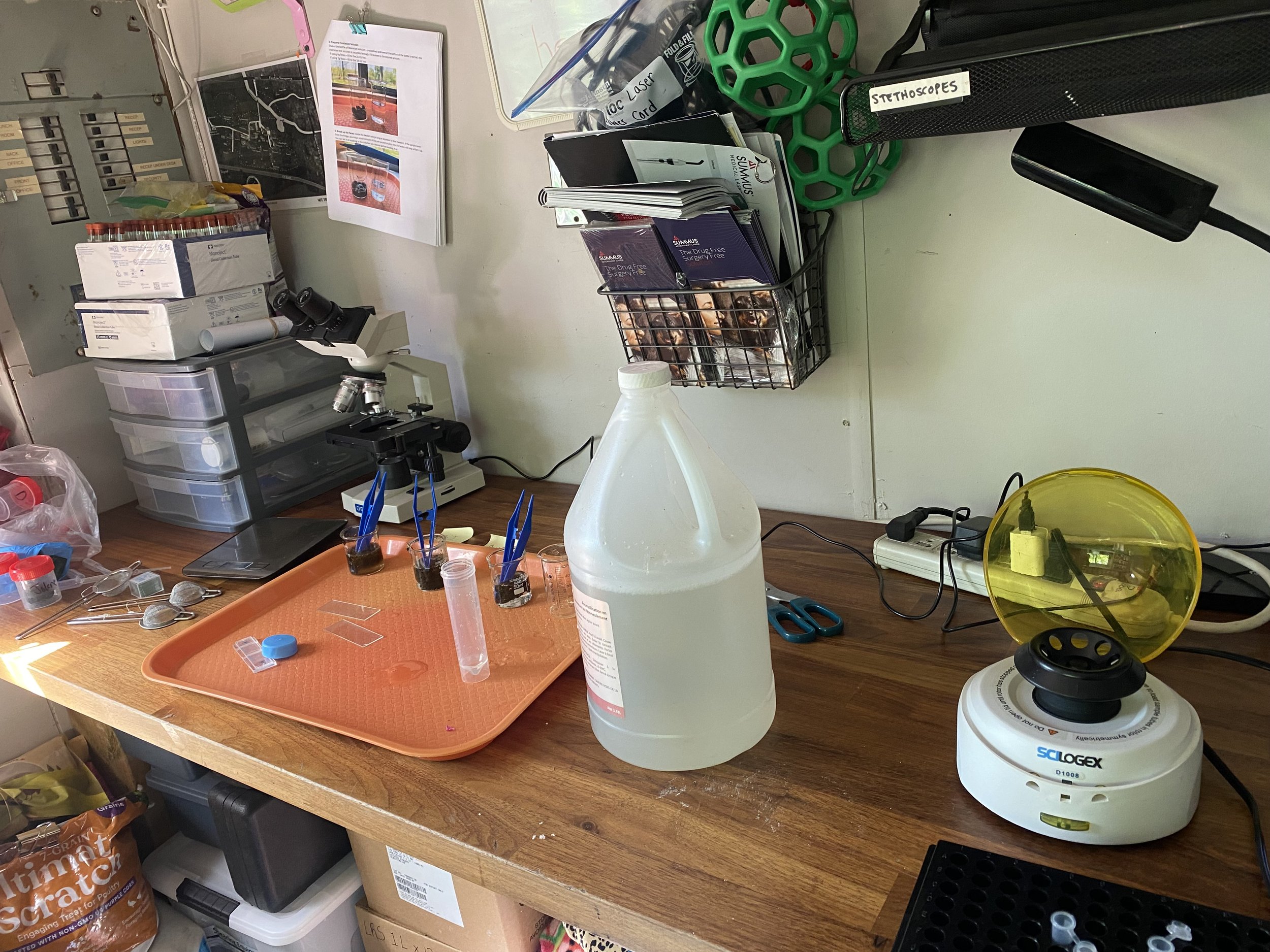PARASITE PREVENTION AND TREATMENT IN SMALL RUMINANTS
/by Andrea White, Animal Care Manager
Spring is in the air, which means warmer weather, growing pastures, and more time for our residents to soak up the sunshine. But it also means that parasites are becoming more active. Parasite prevention and treatment can be complex, but with good management practices and vigilance, we’re able to stay ahead of the curve and keep our goats and sheep healthy and comfortable.
Prevention and Early Detection
At HEEFS, prevention always starts with careful observation. Our caregiver team performs regular hands-on health exams and daily check-ins to spot any early signs of trouble. Changes in appetite, behavior, or even subtle shifts in energy levels or droppings can be early indicators of a parasite issue.
Every spring (and any other time it's needed), we conduct fecal tests to assess parasite loads. Thanks to the generous support of our donors, we now have the equipment and training to run these tests in-house. That means quicker results, faster vet consultations, and more efficient treatments—all while saving on costs.
We also use FAMACHA scoring, a quick and easy tool to detect anemia, often caused by parasites like the infamous barber pole worm. This allows us to make targeted treatment decisions, especially for those more vulnerable due to age or health conditions.
Pasture Management
Pasture management is one of the most powerful tools in parasite control. In early spring, we keep our goats and sheep off pasture until the grass is well-established. This gives the pasture a chance to thrive and helps prevent digestive upset from the rich, sugar-packed spring grass, which can be a bit too much after a winter of hay.
We also practice pasture rotation, allowing fields to rest for several weeks at a time. Giving the land a break helps reduce parasite populations and promotes healthier forage. Cross-grazing with other species, like letting our pigs graze in the small ruminant pastures, adds another layer of control, since most parasites are species-specific and can’t survive in the “wrong” host.
Treatment: Thoughtful and Targeted
Unfortunately, parasite resistance to dewormers is a growing problem. Over the years, the widespread and routine use of dewormers as a preventative measure has led to more resilient parasites, and fewer effective treatment options. With no new drugs on the horizon, we have to be smart and selective in our approach.
That means we only treat when necessary: when symptoms are present, or when a resident has other health challenges that make them more susceptible. We always follow our veterinarian’s guidance and aim to use the right treatment at the right time to avoid contributing to drug resistance.
Our goal is always the same: to keep our residents healthy, safe, and thriving—without compromising the tools we need to care for them in the future.


